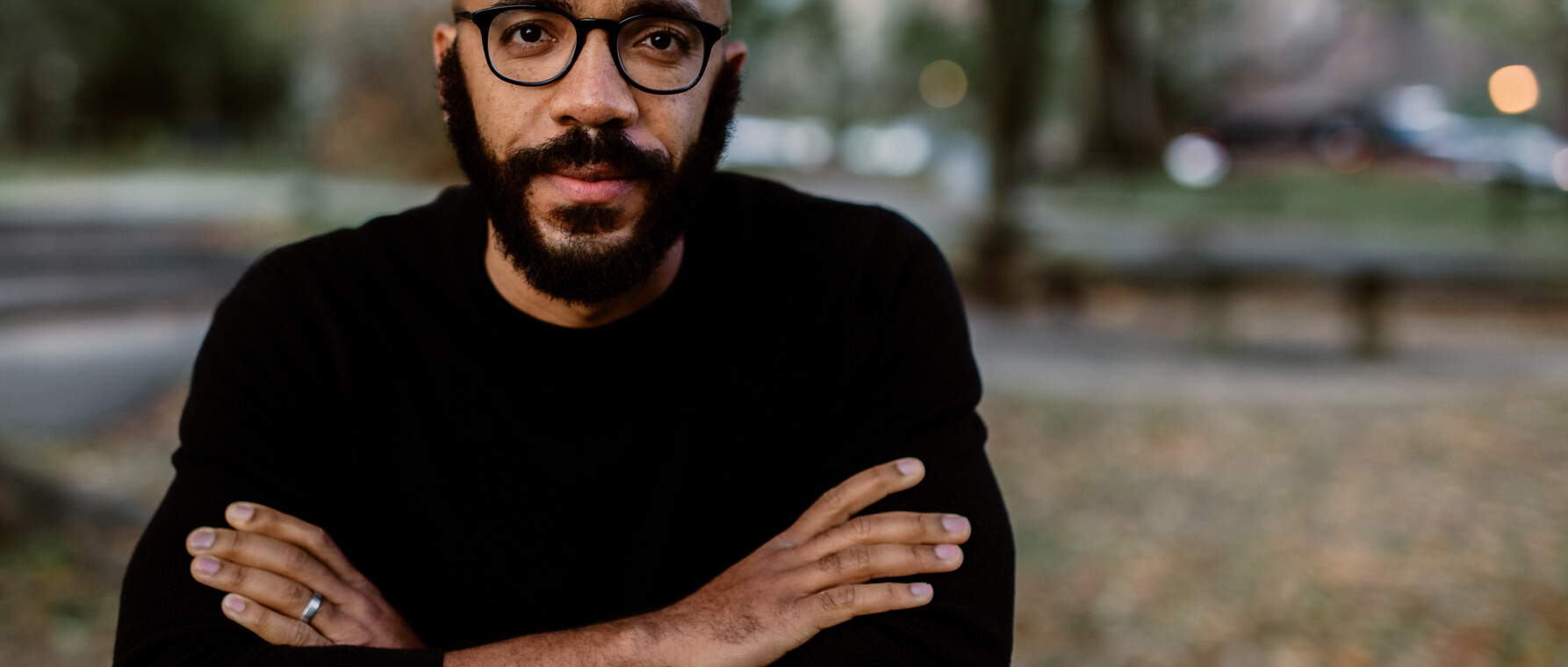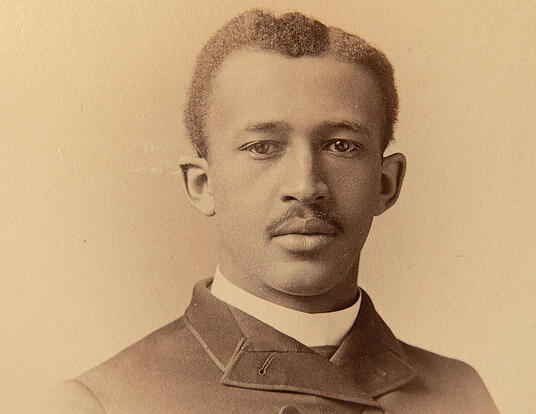Passing the Word on the Living Legacy of Slavery
Clint Smith, PhD '20, on white supremacy's continuing influence on how we think about our history—and ourselves

“I lived it.” Those were the words of writer Clint Smith’s grandmother as she walked through the National Museum of African American History and Culture with her grandson a few years ago and looked at the symbols of white supremacy. “I saw those clan robes,” she said. “I saw the nooses. I saw the buses that people were trying to desegregate. I lived it.”
The moment was one of a series of events—including the removal of Confederate monuments in his hometown of New Orleans—that made Smith, PhD ’20, realize that the history of slavery was personal, present, and all around him. In his new book, How the Word Is Passed, Smith explores the way that the legacy of white supremacy still touches the people he loves, the places he grew up, and the country he calls home.
How did the removal in 2017 of a monument to Confederate general Robert E. Lee in your hometown of New Orleans inspire you to write How the Word Is Passed?
I grew up in New Orleans. My parents still live there. When I watched Lee’s statue come down via live stream, I thought about what it meant that I grew up in a majority Black city where more images and more iconography were dedicated to enslavers than to enslaved people. I could tell you specifically the locations of monuments to Confederate soldiers and Confederate generals, but I couldn’t tell you the locations of a lot of places that had ties to enslaved people, or abolitionists, or folks who worked to end the perpetuation and spread of human bondage.
I started looking around and thinking about monuments, museums, memorials, and historical sites in New Orleans and also in other cities. Are they tackling this history? Are they running from it? Are they doing something in between? I thought that writing a book around the conceit of place was an interesting way to contribute to a robust historiography around enslavement and memory. I hoped I could bring something unique to the work as a poet, a qualitative researcher, a journalist, and a Black man from the South. By bringing my professional background together with my personal life experiences, I thought I could tell an interesting story about how other places were dealing—or not dealing—with the legacies of slavery and white supremacy.
Why was it important for you to tell in this book the stories of “ordinary people” who lived through slavery, as opposed to those of more “heroic” figures like Frederick Douglass and Harriet Tubman, who escaped it?
I think it can be a tricky balancing act. In the context of slavery, there is an impulse to demonstrate that enslaved people were not simply passive recipients of the violence that was inflicted on them. And so, we hold up Tubman and Douglass as examples of people who confronted their enslavers and/or ran away. You know, “Look at these stories about the Underground Railroad. Look at this man who gave speeches that inspired millions to rise up against this horrific institution.”
I fully empathize with that impulse. I think it is important to tell stories of people who resisted enslavement. But I think we have to expand our notion of what resistance looked like with the understanding that it manifested itself in all sorts of small, quotidian ways. I’ve read hundreds of slave narratives and it is just impossible to fully grasp how someone lived from day to day under the threat of violence or the prospect of being separated from the people they loved every moment of their lives.
When you sit with that knowledge, you realize that millions of enslaved people made the best decisions they could to bring some meaning to their lives, to preserve their relationships, and to preserve their sense of self. So, it’s essential to tell the stories of Douglass and Tubman and others, but we also need to lift up the stories of the vast majority of people who were not them and for whom simply surviving was an act of resistance.
What did you learn about the people who see Confederate cemeteries as “sacred ground” and about how we, as Americans, need to change in order to move forward from the legacy of white supremacy?
My visit to Blandford Cemetery in Petersburg, Virginia gave me a new level of clarity about the whole “lost cause” mythology that ennobles the Confederacy and about the ways that our history and how we view it are deeply shaped by our own sense of lineage. It was both endlessly fascinating and deeply unsettling.
For instance, I met a man named Jeff at the Confederate Veterans Memorial Day celebration. He told me that Blandford meant so much to him, that he had a bunch of family members buried there, and that sometimes he liked to come in the evening and sit under the gazebo and just watch the deer graze on the grass around the tombstones. He said he liked to walk through the cemetery with his granddaughters and tell them about their ancestors. I told him that, for me, the place means something fundamentally different. It’s not a place of peace and remembrance. It’s a site that memorializes those who fought to keep people like me in chains.
So, the question is “What does it take for someone to recognize that their sense of self need not be predicated on a lie?” I think about a story on Confederate statues in the New York Times a while back. One of the men they interviewed said, “You want me to accept that my great-grandfather was a monster!” The cause that his great-grandfather fought for was monstrous. But your sense of self doesn’t have to be tied to that cause. You can imagine an identity that is not singularly defined by your lineage. And if you free yourself from that idea, then you create room to acknowledge that, although your ancestors may have fought for something monstrous, that’s not who you are.
Photo by CARLETTA GIRMA
Get the Latest Updates
Join Our Newsletter
Subscribe to Colloquy Podcast
Simplecast





